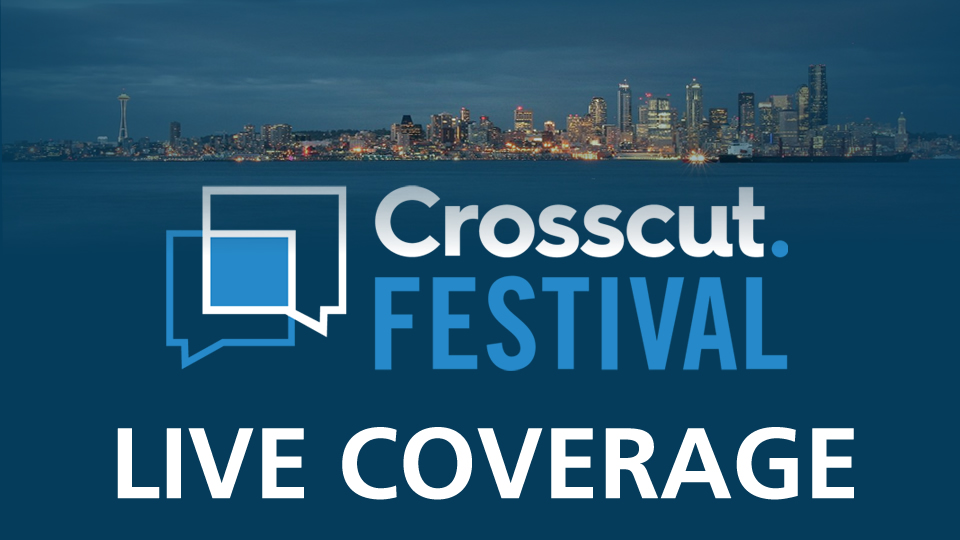Before noon I was already at my third session of the day here at the Crosscut Festival at Seattle University.
“When free speech becomes hate speech” featured panelists Ethan Blevins, staff attorney at Pacific Legal Foundation; Evergreen State College student Jamil Bee; David Neiwert, investigate reporter and author of a recent book on the Radical Right; and Evergreen State College professor of Geography and Native Studies, Zoltán Grossman. Moderating was Sara Bernard.
Bernard started the panel by asking Bee to recount from their perspective some of the challenges they went through at Evergreen last year. They noted it started with a coalition of students raising concerns about patterns of issues on campus and doing organizing to try to create change. When media started reporting on it, it led to national attention and students being victims of online harassment and threats of violence against the campus as a whole.
Bernard then asked Blevins, an attorney, about the legal aspects of hate speech. He said the biggest challenge is that there is not a very good definition of hate speech that is generally agreed upon. Generally hate speech is protected, except that which incites violence, he continued.
Bee followed Blevins statement to explain that the definition of violence was part of complication of the issues at Evergreen.
Grossman pointed out that there is a strong tradition of student protest in this country and it has always been rousing. In the case of Evergreen, there was continued frustration built up on campus after years of raising concerns and students feeling like they were not being addressed. But he also noted that this sort of thing is not just happening on campuses, but across the country in other communities and industries.
When asked if the Alt-Right targets college campuses, Neiwert answered emphatically, “absolutely 100%. I have never seen it this bad in 30 years.”
Alt Right and white supremacists are actively recruiting at unprecedented levels, he said, often through the internet, targeting young white men between the ages of 14 and 30. He said it is done very effectively through appeals to hatred of political correctness, fear of feminism, and fears of people of color. He says recruitment is especially geared towards wealthy young suburban males, and that we are at risk of a generation of radicalized young white males.
Grossman noted that it is not just on college campuses that recruitment is happening, but even earlier than that, at high schools, and urges that prevention of radicalization needs to start much earlier.
After Grossman gave a timeline of the events at Evergreen last year, Blevins noted that a true threat of violence is not going to be protected, but determining the scope of that is a challenge. He said that the Supreme Court is very unwilling to stifle speech in almost all circumstances. Blevins says the remedy is counter-speech and counter-protest.
Neiwert agreed that it’s true that courts are very limited in what they will do, that the First Amendment gives huge amount of leeway. He said, “the court that matters most right now is the court of public opinion, but that court is be swayed by white supremacist jackasses like Tucker Carlson.”
Bee, the only person of color on the panel, pointed out that the very discussion of limits on what can be deemed racist ARE racist. White people cannot set the boundaries of what is racist, people of color should set the boundaries, as the targets of oppression. They emphasized that this is applicable to all forms of oppression, not just race.
Bee said that this is actually what feels most violent to them, “that I cannot say what feels like harm for me, or say it enough for people to want to take action. America has done enough harm to people that nothing feels like the limit for reparations; I have not received enough restoration to start limiting what remedies need to happen.”
The final question asked of the panelist was what universities can or should do about potential hate speech on campus. Bee, as a university student, said that universities need to stick to what their highest value should be: their students and their safety.


Hey it’s me — the Jamil mentioned in this post — and I just wanted to say that I am pleasantly surprised by the integrity of this post.
Hi Jamil. Thanks so much for your comment. We strive for integrity in all of our posts, of course, but I am still very glad to hear your feedback! It is especially important to me to know that I accurately conveyed what you, and the other panelists, had to say. Thanks again for taking the time to comment.